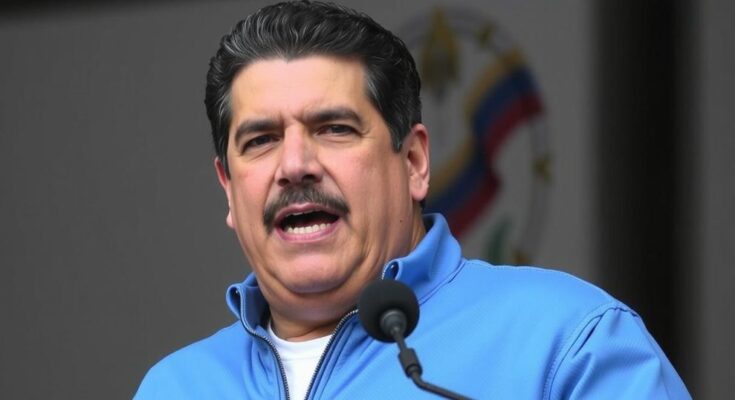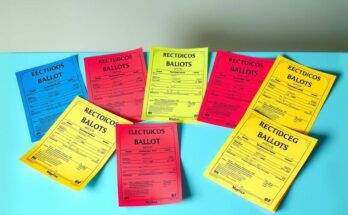Nicolás Maduro is set to begin his third term on January 10 amid allegations of electoral fraud. Skepticism surrounds the legitimacy of the election he contested, and Edmundo González is viewed by many as the rightful winner. The political climate is tense, with opposition calls for protests dampened by fear from government crackdowns. International relations, particularly with the U.S., may influence future strategies regarding Venezuela’s escalating crisis.
On January 10, Nicolás Maduro is set to commence his third six-year term, although his ascent is marred by allegations of election impropriety from the July 28 contest. The sworn-in ceremony will be conducted by the ruling party-led congress, amidst significant doubts concerning the legitimacy of the electoral process. Critics, both domestically and internationally, have expressed skepticism regarding the fairness of the election in which Maduro purportedly won by over one million votes, while many assert that opposition candidate Edmundo González secured a decisive victory.
The Carter Center, invited by Maduro’s government to oversee the election, corroborated that the official tallies published by opposition representatives are credible. “Maduro assuming another term on Friday is a blatant violation of the votes of the Venezuelan people. The published tally sheets back that up,” stated Jason Marczak of the Atlantic Council. Despite opposition calls for protests on the eve of the inauguration, fear from the recent crackdown on dissent dissuades many from participating.
González, recognized by the United States as the rightful president-elect, is currently navigating international support after fleeing Venezuela due to an arrest warrant. His recent engagement with President Biden highlights his efforts to rally backing for the opposition, taking place amidst threats from Venezuelan authorities that increase the historic risk of violence against him. Meanwhile, Maduro appears to be trying to cultivate relations with the incoming Trump administration, inviting President Trump to foster a dialogue based on mutual respect, even as analysts await clarity on the U.S. policy approach towards Maduro’s regime.
Concerns surrounding Maduro’s strategy of leveraging detentions of foreign nationals as bargaining tools could impact U.S.-Venezuela relations. There is speculation about whether the Trump administration may shift from the stringent ‘maximum pressure’ approach of its previous term, particularly considering the ongoing exodus of millions of Venezuelans since 2014. Recent intelligence indicates that the new administration’s national security stance may reflect lessons learned from past policies, as the political situation in Venezuela remains fraught with danger.
The context of Nicolás Maduro’s political situation in Venezuela is steeped in controversy. His upcoming third term follows allegations of electoral fraud from the July contest, with the opposition highlighting that Edmundo González, rather than Maduro, was the actual victor. The political climate is fraught with fear due to the government’s ongoing repression of dissent since the elections, complicating the opposition’s efforts to mobilize support. With the potential for a new U.S. administration under President Trump, observers are closely monitoring how U.S. foreign policy towards Venezuela may evolve, particularly in light of rising humanitarian concerns amidst increasing emigration from the country.
In summary, Nicolas Maduro is prepared to initiate a contested third term amid notable allegations of electoral manipulation that his opposition vehemently denies. The environment leading up to the inauguration is marred by protests thwarted by fear, with Edmundo González seeking international support while facing threats from the Maduro regime. As the incoming U.S. administration contemplates its strategy toward Venezuela, the ramifications of past policies remain a crucial factor in the complicated geopolitical dynamic.
Original Source: www.foxnews.com




